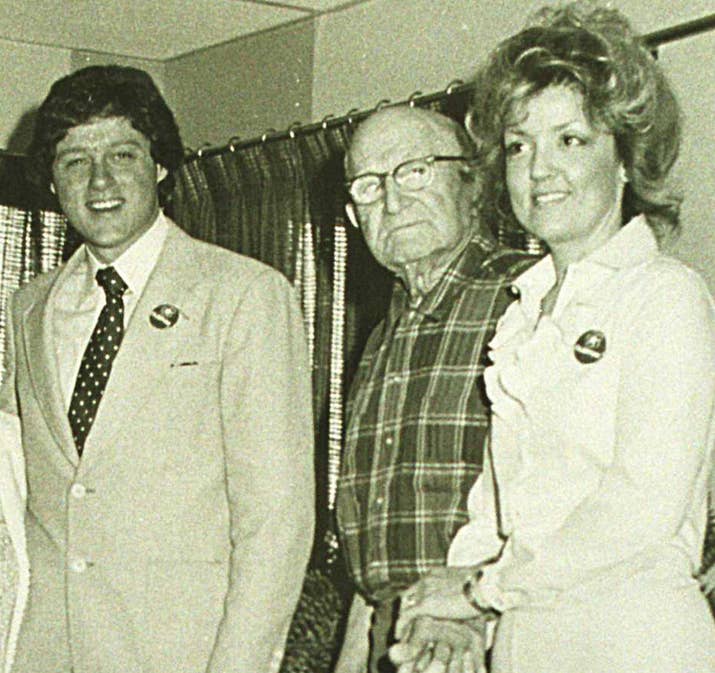
One of the points many women have made since the beginning of the current national discussion about sexual assault and harassment has been that sexism and misogyny have cost women countless opportunities to achieve their full potential. Probably because this began with Harvey Weinstein, much of the mourning of opportunity costs focused on Hollywood: New York Times columnist Maureen Dowd mentioned her reaction to research she did on the topic: “I got more and more angry as I realized that these women were being systematically excluded based on ridiculous biases.”
It’s an excellent, long-overdue point: Who could possibly count how many brilliant women have been denied high-profile roles as actors and directors and studio executives as the result of the studios’ toxic “casting couch” culture? How much great insight and entertainment have the rest of us, including men, lost because we have been denied the full expression of women censored because they refused to sleep with some nasty executive?
Outside the world of entertainment, might cancer have been cured had more women been encouraged to enter a STEM career?
At the same time, there are many other forms of discrimination that have similar effects, yet they’re so hardwired into the system that we don’t give them much thought.
Most of these tragic cases of human underachievement are the direct result of economic discrimination. There is the guy who would be a great poet if not for the fact that he grew up in rural West Virginia and his parents were poor and uneducated so it never occurred to them to point him towards a career that, had they heard of it, would seem useless and impossible to turn into a viable means of making a living — which, because they were poor, was the only thing they could think about.
There is the woman working as a cashier in the Bronx who might have gone to Yale if she had been granted a scholarship or had been born into a wealthy family, the woman who would have created an amazing computer company had the sexist pigs who compose Silicon Valley’s V.C. class given her pitch a fair hearing, the girl of color sitting in class in a rundown elementary school whose horizons have become a sinkhole thanks to mere demographics.
You can turn this around and look at it from the other side as well. Think of all the profiles you’ve read about an actor who scored his big break due to pure happenstance (as opposed to talent). You may have such a story yourself. If you think about it, though, the random lucky break is not a heartwarming confirmation that the universe provides what you need. Those breaks are few and far-between. The terrifying truth is that most people who deserve them never get them — and that sucks. It reflects the arbitrary and capricious nature of a system that barely pretends to be a smidge of a meritocracy.
I feel luckier than most. Even so, there are many things that I was never able to do simply because I didn’t have enough money: attend the college of my choice, study the major of my choice, join the Peace Corps, take a gap year and travel through Europe, get knee surgery, accept an internship, attend the grad school that accepted me but didn’t offer me financial aid, start a small newspaper, tell a jerky boss to go to hell. I doubt that many people reading this would have trouble composing an even longer list of things they would have liked to do, places they would have liked to see, businesses they would have liked to start, all out of reach due to a lack of funds.
Aside from stifling our dreams and crushing our ambitions, our cult of capitalism denies us the broad-based political debate that might solve many of our most pressing problems. Due to the pro-corporate, right-wing political bias of the mainstream media, all the left-wing ideas that never get expressed in the opinion pages and society are denied distribution, meaning that they never get discussed. For example, antiwar voices are never allowed space in major newspapers, radio news broadcasts, or on television. Surely that rigid censorship has something to do with the fact that the United States has constantly been at war since the American Revolution. When is the last time you heard a politician or pundit argue that we ought to spend more on mitigating climate change than we do on the military?
Capitalism is presented as an ideology that allows people to fulfill their ambitions and make the most of themselves, but in reality it’s exactly the opposite: it constrains people to what they can achieve based upon what’s in their bank account or in their parents’ estate. So the United States has been one of the least socially mobile societies in the industrialized world for quite some time (and it’s getting worse) but most Americans don’t have a clue. This caste system also applies to everyone. Even under a construct of systematic sexism and misogyny, a wealthy woman enjoys far more opportunity than a poor man.
This is not to say that women don’t have every right to rage against men, or to understate the validity of women’s complaints about male misdeeds ranging from contempt to physical assault. The sexual assault and harassment discussion is yet another reminder that the fundamental underlying cause of the problem is power and its inevitable abuse.
It has long been a standard argument of feminists that the world would be a better place if women were in charge.
Certainly more women should be in charge: exactly 50% of the people in charge ought to be women. But we need to look beyond sexism to understand the meta root cause behind unjustly (and foolishly) squandering countless human potential. Whether that waste is directly attributable to discrimination based upon race, gender, or some other factor, it will continue as long as we live in a society whose foundation relies upon the disgusting assumption that only those who can afford it have the right to be everything that they can be.
(Ted Rall’s (Twitter: @tedrall) next book is “Francis: The People’s Pope,” the latest in his series of graphic novel-format biographies. Publication date is March 13, 2018. You can support Ted’s hard-hitting political cartoons and columns and see his work first by sponsoring his work on Patreon.)


 From Clarence Thomas to Jerry Sandusky to Bill Cosby to Harvey Weinstein, those who doubt their accusers always ask something similar to what
From Clarence Thomas to Jerry Sandusky to Bill Cosby to Harvey Weinstein, those who doubt their accusers always ask something similar to what 